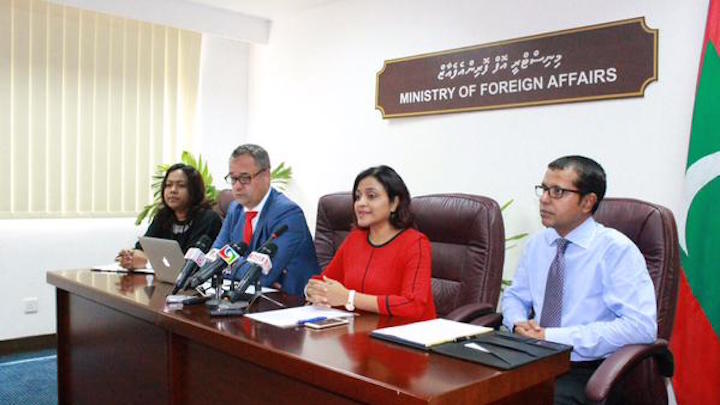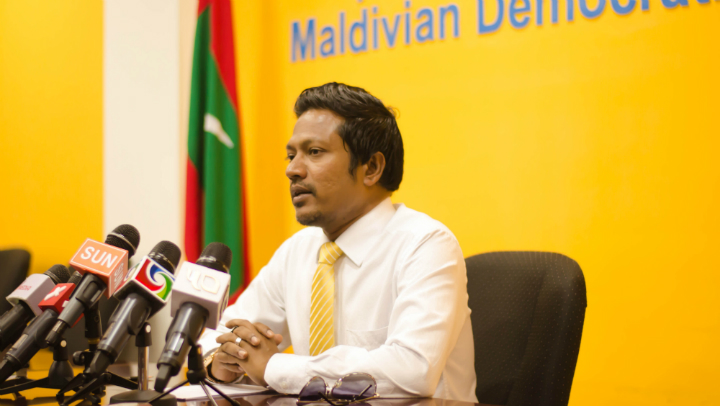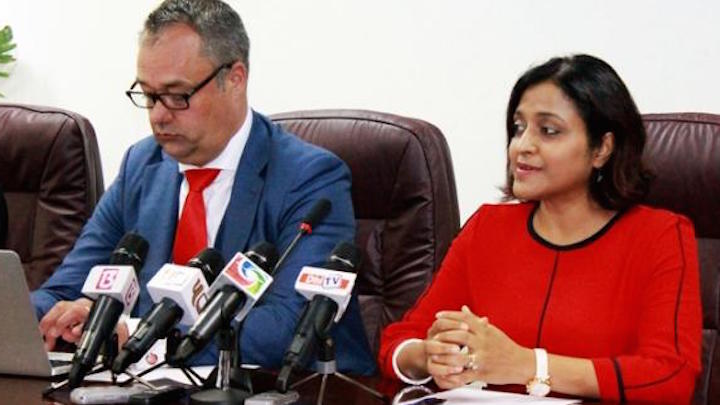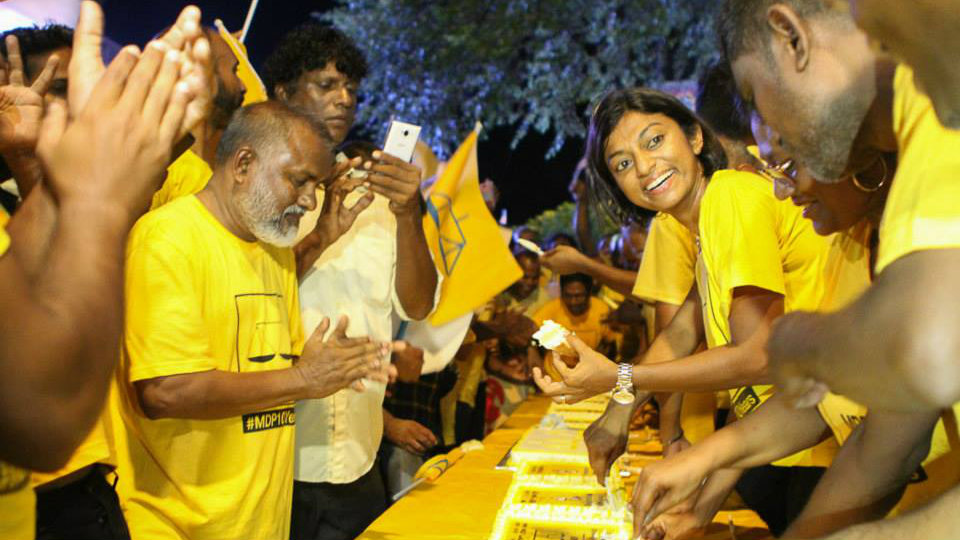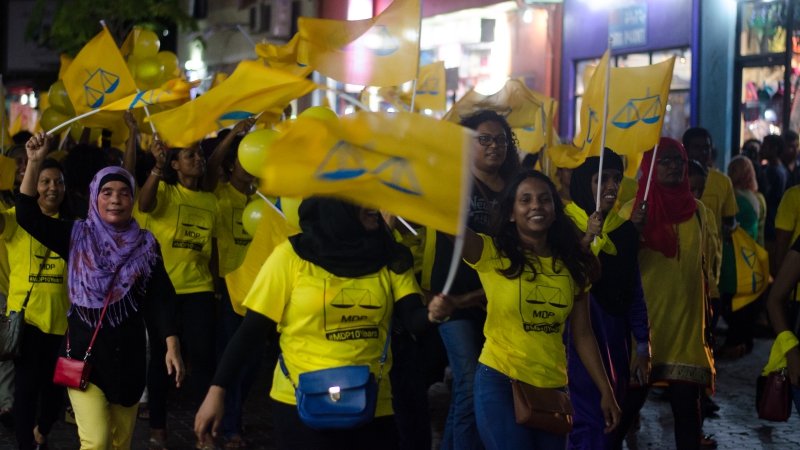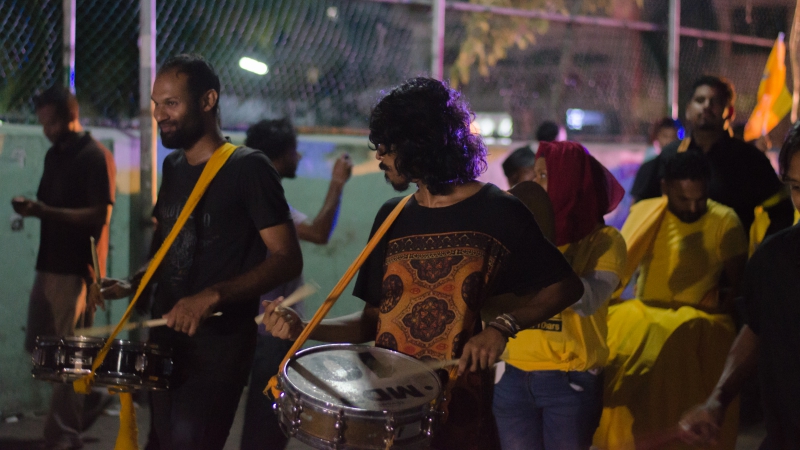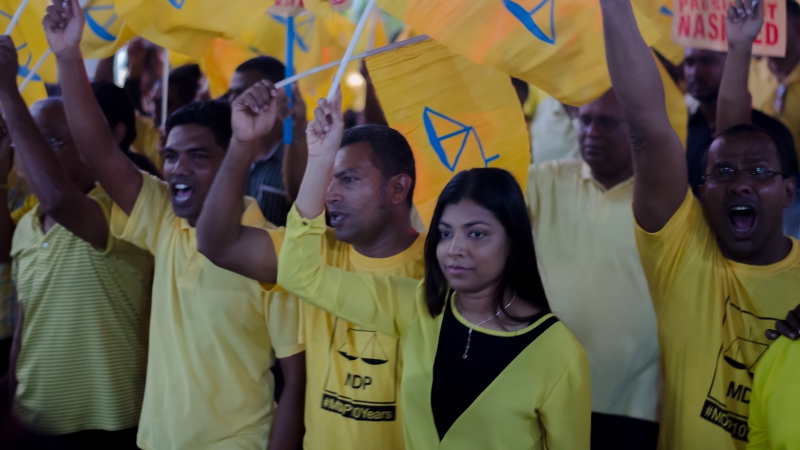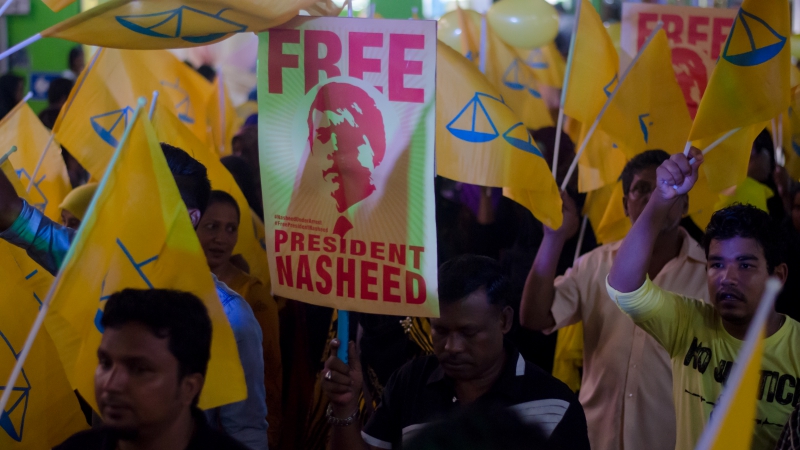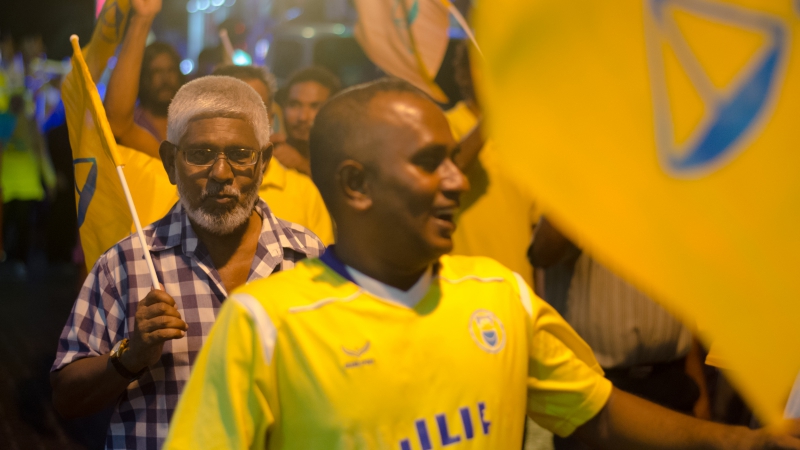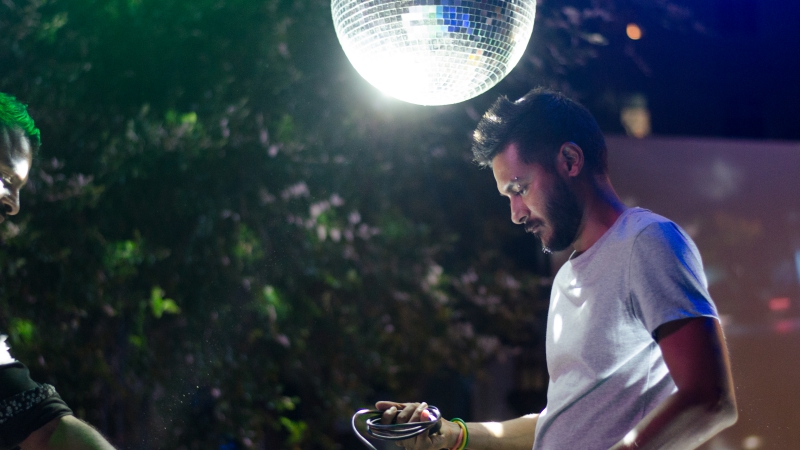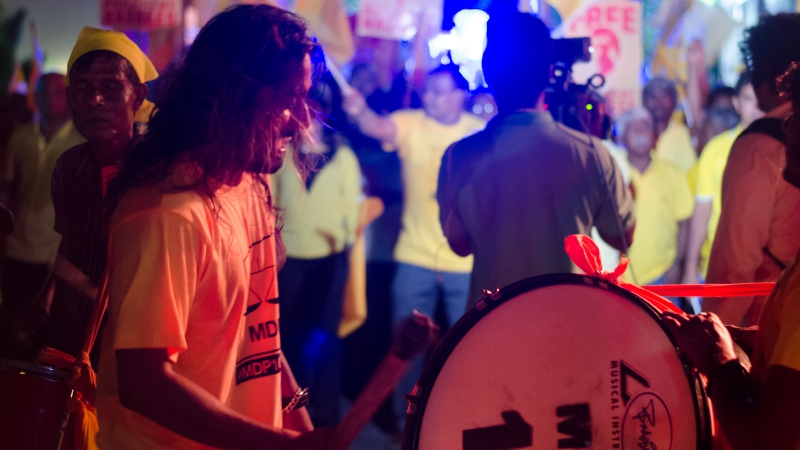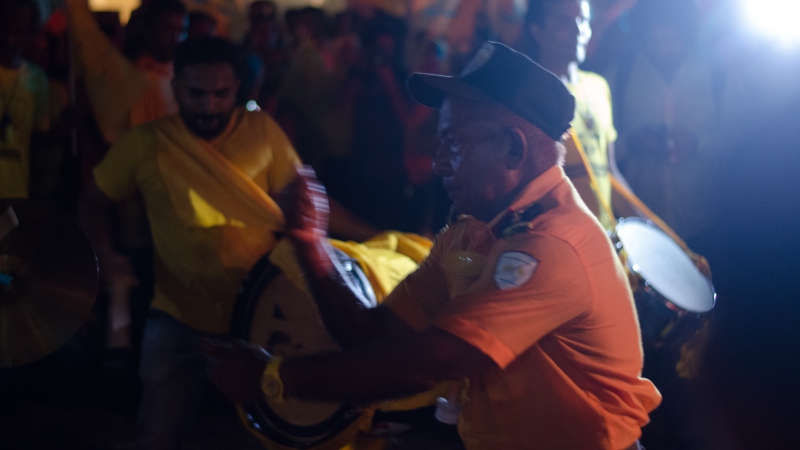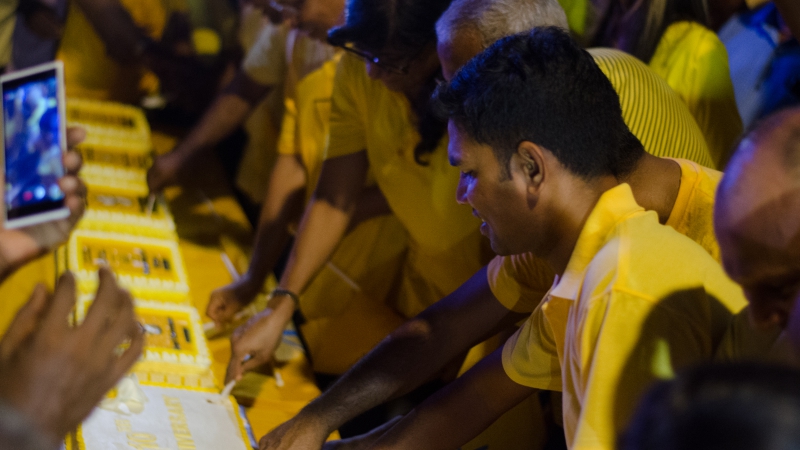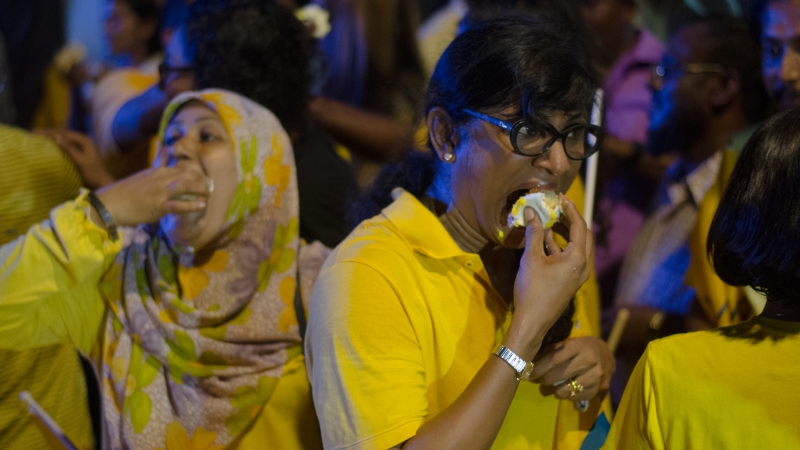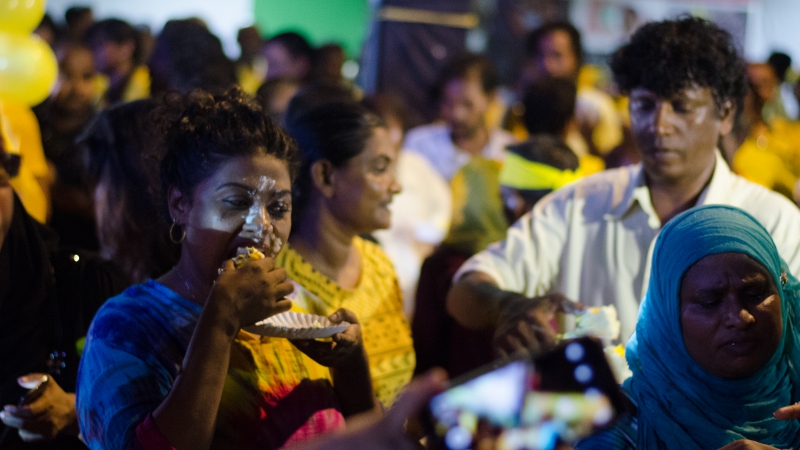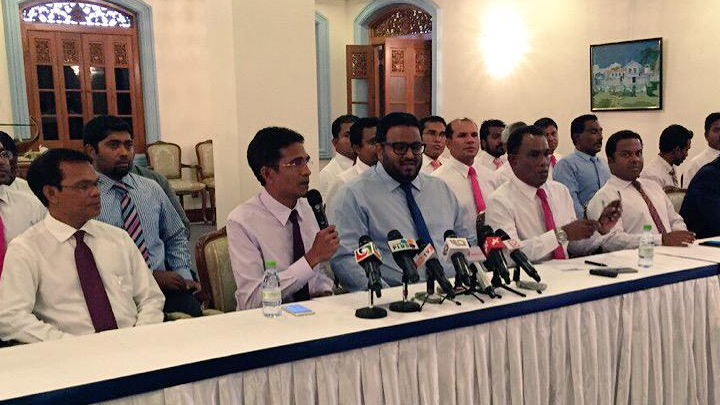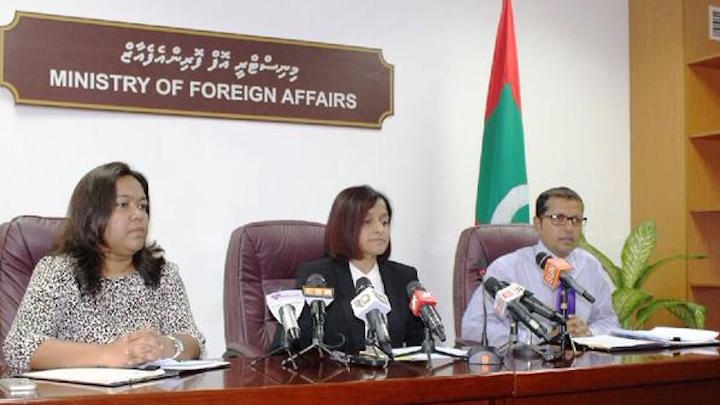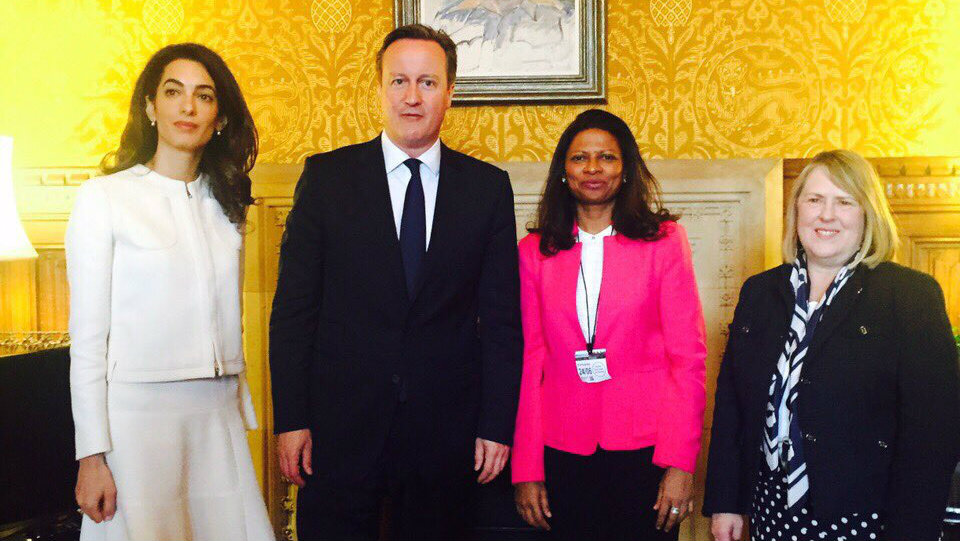The main opposition Maldivian Democratic Party (MDP) has accused Omnia Strategy of lying over its role in advising President Abdulla Yameen’s administration.
The UK-based law firm owned by Cherie Blair, the wife of former British prime minister Tony Blair, had said its work was limited to assisting the government in strengthening democracy.
But the foreign ministry revealed yesterday that Omnia Strategy was assisting the government in preparing a response to a petition filed by former President Mohamed Nasheed at the UN working group on arbitrary detention. The company’s fees will be revealed when its work is complete, the foreign minister has said.
The opposition leader’s international legal team is seeking a judgement declaring his imprisonment on terrorism charges arbitrary and unlawful.
The government has been asked to respond before the first week of July.
The MDP, in a statement yesterday, said that the contract with the law firm is “thought to be worth of millions of dollars” and noted Omnia had previously said it would not become involved in domestic politics.
“But today, Omnia lawyer Toby Cadman appeared at a press conference in Malé alongside foreign minister Dunya Maumoon, where he revealed Omnia’s actual work involved responding to the claim submitted by President Nasheed to the UN working group on arbitrary detention,” the MDP said.
Cadman, a partner at the law firm, “made a robust defense of Nasheed’s jailing, and even suggested that his 13-year sentence should have been a life sentence.”
The MDP said Cadman’s claim that Nasheed was guaranteed the right to legal counsel during his 19-day terrorism trial was “a shameless and brazen departure from the truth”.
MDP international spokesperson Hamid Abdul Gafoor called Omnia Strategy “the very worst kind of mercenary outfit.”
“They are taking possibly millions of dollars in exchange for helping a dictatorship keep a democracy hero in jail,” he said.
“Blair and Cadman should be utterly ashamed of themselves. They are no friends of the Maldives.”
Speaking to the press yesterday, Cadman said due process was followed in Nasheed’s trial and that the government has prepared its defence.
The former president was sentenced to 13 years in prison over the military’s detention criminal court chief judge Abdulla Mohamed in January 2012.
“If the offence had occurred in the United Kingdom the former President could have been charged with an offence of kidnapping or false imprisonment, an offence which carries a maximum penalty of life imprisonment,” said Cadman.
“Throughout the legal proceedings against former President Nasheed, his constitutional right to effective legal representation has been guaranteed and when his legal representatives boycotted the proceedings, the former president was repeatedly reminded of his right to alternative legal representation”.
Cadman also said that Nasheed was not kept in solitary confinement, but was “detained in a facility that would not only meet international best practices, but arguably far exceed any acceptable level.”
Nasheed’s conviction on terrorism charges after a 19-day trial was widely criticised over apparent lack of due process. International pressure on the government to release the former president and other “political prisoners” have been mounting in recent weeks.
The European parliament and US Senators John McCain and Jack Reed have called for Nasheed’s immediate release.
Briefing the press in Washington DC after filing the petition in late April, Nasheed’s lawyer Amal Clooney said the terrorism trial violated due process and compromised the basic guarantee of presumption of innocence.
Amal said that the court had said that there was no need to call for defence witnesses because such witnesses “would not be able to refute the evidence submitted by the prosecution”.
“This tells you everything you need to know about the process. Because why call a defense witness, if you already know that the verdict is going to be guilty,” she said.
Following the government’s announcement that it has enlisted Omnia Strategy earlier this month, Nasheed’s MDP expressed “disgust” with the law firm’s decision to represent President Yameen’s administration.
The MDP said at the time that the current administration “appears to have hired the most unethical and profiteering mercenaries money can buy.”
The former UK Attorney General Baroness Scotland, who sits on Omnia’s advisory council, was paid £125,000 for two weeks’ work in 2012, advising Mohamed Waheed Hassan, Nasheed’s deputy who had ousted him earlier that year.
